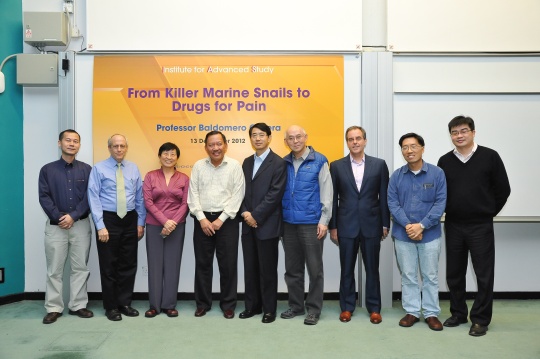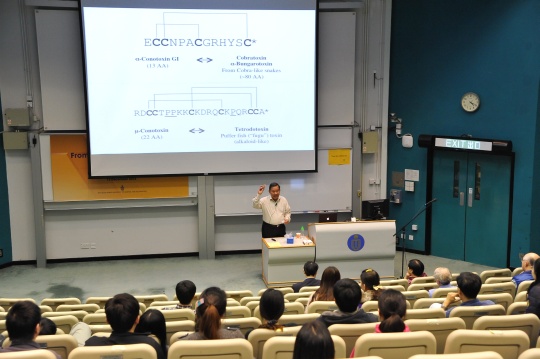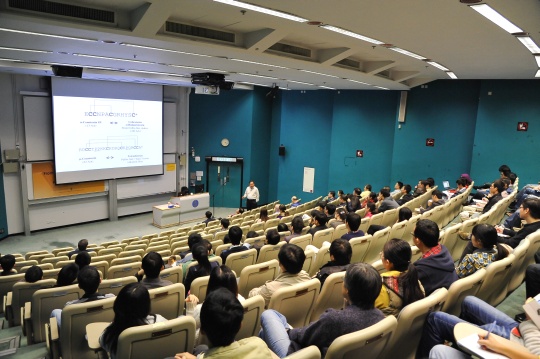From Killer Marine Snails to Drugs for Pain
Abstract
Snakes, scorpions and spiders are the most familiar of potentially deadly venomous animals. However, there are over 12,000 different species of venomous snails from the marine environment; some of these have venom that is as deadly as that of any snake. A lineage of these marine snails, known as cone snails (Conus), have evolved to specialize on capturing fish — one of the species has a 70% human fatality rate in the absence of medical intervention. The active components of the venoms are peptides; each cone snail venom is extremely complex with about 200 different peptide components. One snail venom peptides discovered in our laboratory has become an approved drug for treating intractable pain, and at least 4 others have reached human clinical trials. Since there are believed to be literally millions of different pharmacologically active compounds in marine snail venoms, the possibility of developing some of these as novel drug leads, particularly for pain, is eminently feasible. Thus, research exploring cone snail venoms is an exercise in converting the riches of Biodiversity into Biotechnology.
About the speaker
Prof. Baldomero Olivera received his PhD in Biophysical Chemistry from the California Institute of Technology (Caltech) and did postdoctoral work in Biochemistry at Stanford University. He was Research Associate Professor at the Department of Biochemistry at University of the Philippines College of Medicine. He moved to the University of Utah in 1972, where he is currently a Distinguished Professor of Biology.
Prof. Olivera’s major research interest is in molecular mechanisms that underlie nervous system function. His impressive research on both DNA biophysics and conotoxins has enabled him to serve as an editorial board member of various scientific publications. He served as a member of the editorial board of the Journal of Biological Chemistry from 1982 to 1987, the Journal of Toxinology – Toxin Reviews from 1990 to 1993, and Toxicon from 2000 until the present. In addition, he was a member of the review committee of the journal Cellular and Molecular Basis of Disease from 1982 to 1986. Prof Olivera has also served as a committee member of various institutions. He was a member of the Visiting Committee of the Department of Molecular Biology and Biochemistry of Harvard University from 1988 to 1995, the Advisory Committee to the Director of the National Institutes of Health from 1996 to 1999, the Toxicology Advisory Committee of the Burroughs-Wellcome Foundation from 1999 to 2001, and has been a member of the Searle Scholars Advisory Board since 2007.
Prof. Olivera is a Member of the US National Academy of Sciences and the US Institute of Medicine, a Fellow of the American Academy of Arts and Sciences and the American Philosophical Society. He was also a recipient of the Outstanding Alumni Award of Caltech, the Redi Award from the International Society for Toxinology and the Harvard Foundation Scientist of the Year 2007 Award from Harvard University.
Prof. Olivera will also give a seminar on “From Conus Venons to Constellation Neuropharmacology: A new strategy for investigating nervous system function” on 14 Dec (Friday) at HKUST.








